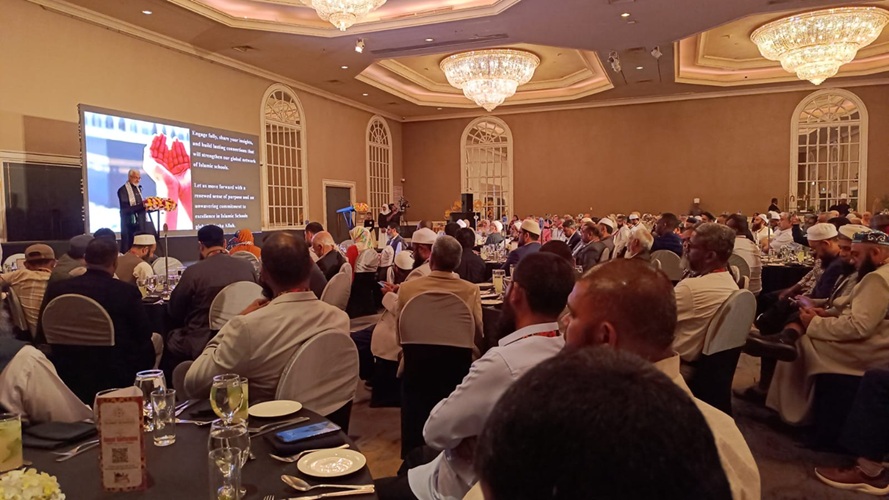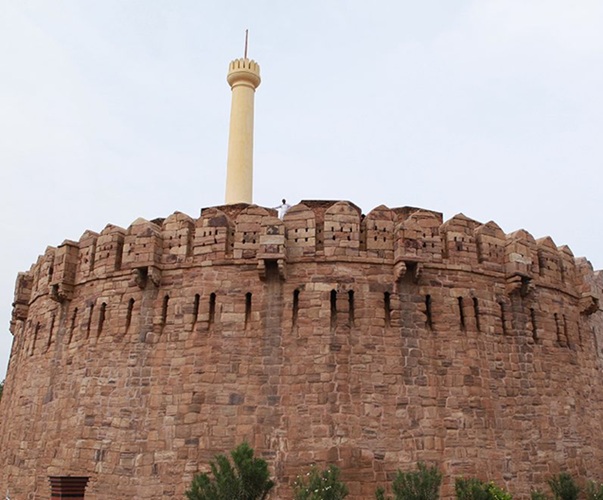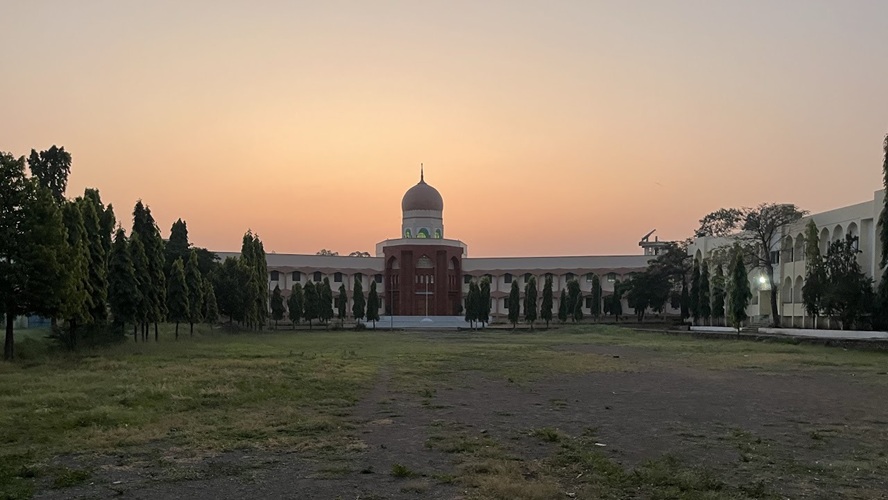
by Editor | Oct 5, 2025 | B-School, Business, Business Summit, Entrepreneurship, Events, Muslim World, Social Round-up
By Maeeshat News Network | Colombo, Sri Lanka
Colombo’s vibrant coastline set the stage for the 4th Annual Conference of the Global Association of Islamic Schools (GAIS), which opened with a resplendent Welcome Gala Dinner at the luxurious Hilton Colombo. Themed Tajdīd: Inspiration to Impact, the four-day summit, running from October 5 to 8, 2025, unites over 350 educators, school leaders, and visionaries from more than 29 countries to reimagine Islamic education in a rapidly evolving world.
The gala dinner, a blend of Sri Lankan hospitality and global Islamic unity, featured aromatic halal cuisine, local school students’ performance, and heartfelt networking, setting an inspiring tone for the days ahead. Zaffar Ahmed, President of GAIS, delivered a stirring address, outlining the association’s mission to empower 1.4 million students and 116,000 teachers through innovative programs. Ahmed also announced the formation of a new GAIS Advisory Board, tasked with guiding strategic initiatives to elevate Islamic schooling globally.
Fahad Haroon, GAIS Vice President, emphasized the conference’s role as a catalyst for collaboration. “This is a platform to forge meaningful partnerships,” Haroon said. “Networking here will spark transformative ideas that ripple into classrooms worldwide, fostering purpose-driven education rooted in faith and foresight.”
The conference boasts a dynamic roster of speakers, including Prof. Mohamad Abdalla AM, Director of the Centre for Islamic Thought and Education at the University of South Australia. His forthcoming address will explore integrating Islamic principles with contemporary educational challenges, drawing on his expertise in faith-based policy advocacy. Dr. Abdullah Şahin, Reader in Islamic Education at the University of Warwick, UK, also captivated attendees with preview remarks on “faith-based critical thinking” to nurture resilient Muslim identities and counter extremism through reflective learning.
Local voices, such as Azim Abdul Majeed, CEO of Sri Lanka’s Iman Academy, celebrated the opportunity to host. “This is a historic moment for Sri Lanka’s Muslim community to showcase our educational innovations and learn from global peers,” Majeed noted, referencing the nation’s rich Islamic heritage and resilience post-2019 challenges.
Set against the Hilton Colombo’s panoramic ocean views, the conference leverages Sri Lanka’s cultural and spiritual legacy as a fitting backdrop. The Muslim community, forming 10% of the population, has long championed education as a pillar of progress.
Social media buzzed with excitement, with delegates like Radio Islam’s team sharing: “First time in Sri Lanka for #GAIS2025. Inspired by the coastline and ready for transformative discussions. Updates to follow, insha Allah.” Local institutions, including Next Generation School, highlighted bilingual curricula innovations, amplifying Sri Lanka’s contributions to global Islamic education.
Starting October 6, the conference dives into interactive workshops and panels on curriculum innovation, ethical technology integration, and leadership in multicultural settings. Designed to translate inspiration into action, these sessions aim to equip educators with practical strategies for their schools.
GAIS’s growth reflects a global demand for holistic Islamic education. Building on last year’s success, which scaled resources exponentially, the 2025 conference aims to forge new partnerships and amplify impact. “We are not just educating—we are empowering communities to lead with faith and vision,” Dr Syed Misbahuddin, newly elected advisory board member affirmed.

by Editor | Oct 1, 2025 | B-School, Entrepreneurship, Family, Lifestyle, Muslim World, News
Maeeshat News Network | Mumbai
In a nation where stories of grit and determination often emerge from the unlikeliest corners, Dr. Mariyam Afifa Ansari stands as a beacon of unyielding ambition. Hailing from the bustling textile hub of Malegaon in Maharashtra – a city synonymous with its power loom industry and resilient Muslim community – Ansari has etched her name in medical history as India’s youngest female Muslim neurosurgeon. Her journey, marked by academic triumphs against formidable odds, is not just a personal victory but a clarion call for underrepresented voices in STEM fields.
Born and raised in Malegaon, a town of approximately 500,000 residents predominantly engaged in weaving and small-scale manufacturing, Ansari’s early education unfolded in the humble confines of Urdu-medium schools. These institutions, while culturally enriching, often face resource constraints that hinder access to advanced sciences. Undeterred, Ansari completed her schooling up to Class 10 in such a setting, laying the foundation for what would become an extraordinary ascent. “Success comes to those who believe in hard work and dedication,” a sentiment echoed in reports from the Muslim Media, which first spotlighted her story in 2022. Her breakthrough came in 2020 when she clinched the 137th rank in the fiercely competitive All India NEET (National Eligibility cum Entrance Test), securing her entry into one of India’s premier medical colleges.
Now in her mid-20s, Dr. Ansari has completed her rigorous postgraduate training in neurosurgery – a field demanding precision, endurance, and intellectual prowess. At a time when women comprise less than 20% of neurosurgeons in India, her achievement as the youngest in her demographic shatters glass ceilings and stereotypes alike. Maharashtra’s Muslim Students’ Organization (MSO) hailed her as a “trailblazer,” noting how her success has inspired a new generation of girls in Malegaon to pursue medicine. Local educators and community leaders credit her story with boosting enrollment in STEM programs among Urdu-medium students, a demographic historically sidelined in higher education.
Social media has amplified Ansari’s narrative in recent days, transforming it into a viral emblem of empowerment. On X (formerly Twitter), posts celebrating her milestone have garnered thousands of engagements. One user, Shirin Khan (@ShirinKhan_13), shared: “Dr. Mariyam Ansari, who achieved a historic milestone from a modest Urdu-medium school in Malegaon, is now India’s first Muslim woman to become a neurosurgeon. Let’s celebrate and highlight all their wins.” The post, featuring an image of Ansari in her white coat, amassed over 1,800 likes and 200 reposts within hours. Another contributor, M. Shaikh (@Mragibshaikh), posted: “Dr. Mariyam Ansari: Urdu-medium se India’s first Muslim woman neurosurgeon tak! Malegaon ki beti ne dikhaya, sapne koi limit nahi maante.” These digital echoes underscore a broader conversation on intersectional challenges faced by Muslim women in India, from socioeconomic barriers to cultural expectations.
Ansari’s rise resonates deeply in Malegaon, a city that has weathered economic hardships and communal tensions yet fosters a vibrant cultural ethos. Her story draws parallels to other local luminaries, such as the amateur filmmakers chronicled in the 2024 Bollywood film Superboys of Malegaon, which portrays the town’s hyperlocal creativity and community spirit. While Ansari remains private about her personal life, her public persona – through interviews and community talks – emphasizes mentorship. “I want every girl in Malegaon to know that our backgrounds don’t define our futures,” she reportedly told a local gathering last year.
As India grapples with healthcare disparities, particularly in specialized fields like neurosurgery, Dr. Ansari’s expertise could not be timelier. With an aging population and rising neurological disorders, her contributions promise to bridge gaps in underserved regions like her hometown. Experts predict she may soon lead initiatives to introduce advanced medical training in Urdu-medium schools, fostering a pipeline of diverse talent.
Dr. Mariyam Afifa Ansari’s odyssey from Malegaon’s weaving looms to the operating theater is more than a medical milestone – it’s a testament to the transformative power of perseverance. In an era demanding inclusive progress, her legacy urges us to invest in every child’s dream, no matter the starting line.

by Editor | Sep 29, 2025 | B-School, Entrepreneurship
Maeeshat News Network | Kurnool
Kurnool, a historic district in the Rayalaseema region of Andhra Pradesh, serves as a gateway to understanding the evolving educational dynamics in southern India. Once the capital of Andhra State from 1953 to 1956, Kurnool today grapples with developmental challenges, including education, amid a backdrop of rural-urban divides and socioeconomic disparities. With a population exceeding 4 million as per the 2011 census, the district’s literacy rate stands at approximately 59.97%, below the state average of around 67.35%. This figure highlights persistent issues such as low enrollment in higher education, especially among marginalized communities, and infrastructural gaps in rural areas. However, amid these challenges, Muslim institutions have emerged as pivotal players in fostering educational access and community empowerment, contributing significantly to societal upliftment through targeted programs and inclusive initiatives.
Kurnool’s educational ecosystem encompasses a mix of government, private, and minority-run institutions, ranging from primary schools to universities. The district hosts over 600 colleges and numerous schools, reflecting efforts to expand access. Key higher education institutions include the Indian Institute of Information Technology, Design and Manufacturing (IIITDM) Kurnool, Rajeev Gandhi Memorial College of Engineering and Technology, and Rayalaseema University, which offer programs in engineering, management, and sciences. On the school front, government junior colleges like Govt Junior College (Boys) Kurnool and private entities such as Vasavi Mahila Kalasala cater to secondary education.
Despite these advancements, challenges persist. Rural areas face a “conundrum of literacy and skills,” where population growth outpaces educational infrastructure, leading to high dropout rates and skill mismatches. The district’s literacy rate has shown gradual improvement from 54% in 2001, but disparities remain stark, particularly for females (49.78%) and socioeconomically disadvantaged groups. Enrollment in higher secondary grades is uneven, with gross enrollment ratios lagging in underrepresented communities. Initiatives like those from NGOs such as Vibha aim to transform rural education, focusing on English literacy and foundational skills in villages like Kanimerla. Overall, while Andhra Pradesh strives for universal literacy, Kurnool’s scenario underscores the need for inclusive strategies to bridge gaps in access and quality.
The Role of Muslim Institutions in Uplifting Societies
Muslim institutions in Kurnool play a crucial role in addressing educational inequities, particularly for minority communities, which constitute a significant portion of the population (with Urdu as a major spoken language at 15.21%). These institutions not only provide formal education but also foster social mobility, economic empowerment, and cultural preservation. By offering affordable or free education, coaching for competitive exams, and support for Urdu-medium students, they help mitigate barriers like poverty, early marriage, and gender discrimination.
A key player is the Centre for Educational Development of Minorities (CEDM), established in 1994 and operating a regional center in Kurnool at Osmania College Campus. CEDM implements government schemes for minorities, including Muslims, through programs like NEET coaching, Group 2 exam training, and specialized support for Urdu-medium students. These initiatives include bilingual study materials, faculty assistance, and career guidance, aiming to level the playing field and build confidence among minority youth. By evaluating and developing policy frameworks, CEDM contributes to broader community upliftment, enhancing access to professional opportunities and promoting inclusivity.
Islamic schools and madrasas further bolster this effort. Prominent ones include Madrasa E Farooqiah, Jamia Nizamia, Azaan International School, Islamia Model High School, and Spring Fields School, which emphasize quality education infused with Islamic values. These institutions often serve underprivileged sections, providing holistic development that combines academics with moral education, thereby aiding in societal integration and reducing dropout rates among Muslim children.
Organizations like the Students Islamic Organisation (SIO) Andhra Pradesh actively engage in advocacy and events, such as the “Intellectuals & Professionals Meet” under the Andhra Education Movement in Kurnool. These gatherings discuss the current educational situation, the role of professionals in student upliftment, and utilizing institutions for community development, fostering innovative approaches to academic excellence.
Impact on Muslim Girls and Broader Community
A focused study on Muslim girls in Kurnool reveals the transformative potential of these institutions. Challenges like early marriage (affecting 80.3% of respondents) and economic barriers are significant, yet professional education is seen as a pathway to social mobility (92.3% agreement) and economic empowerment (92.0%). Urban areas show better access, with reduced gender discrimination and religious support for education, as Islam is viewed as equitable (90.3%). Institutions addressing these through scholarships and infrastructure can enhance equity, leading to greater participation of Muslim women in national development.
Broader impacts include reduced child labor and improved literacy among Muslims, who historically lag in elementary education in districts like Kurnool. By promoting cultural empowerment and shifting community perspectives, these institutions contribute to sustainable societal progress.
Kurnool’s educational scenario, marked by progress amid challenges, is enriched by the dedicated efforts of Muslim institutions. Through targeted education, coaching, and community engagement, entities like CEDM and local Islamic schools are instrumental in uplifting marginalized societies, fostering empowerment, and bridging divides. As Andhra Pradesh advances toward higher literacy and inclusivity, strengthening these institutions will be key to realizing equitable development for all.

by Editor | Sep 26, 2025 | News & Trending, Opinion, Opinions, Politics
By Frank F Islam
Last Friday, just as Americans were winding down for the weekend, the White House dropped a shock-and-awe measure affecting many leading US businesses. On that day, President Donald Trump signed a proclamation announcing a staggering $100,000 fee on H-1B visa for each employee hired under the programme, effective September 21. This H1-B proclamation could be extremely problematic for the technology industry in the US and India and strains the already strained relationship between the two great nations. even further.
The H1-B proclamation sparked 24 hours of absolute mayhem. Microsoft and other major employers urgently advised their H-1B workers abroad to return before the deadline and instructed those still in the US to avoid international travel. By Sunday evening, perhaps bowing to business pressure and the turmoil unleashed, the White House clarified that the fee would not apply to current H-1B visa holders or petitions filed before September 21. Sunday’s clarification, through an H-1B FAQ posted on the White House website, offered some relief to existing visa holders, but it also carried ominous signals about what lies ahead.
The FAQ noted that the administration is preparing further reforms to the H-1B programme. Among them, the department of labour will launch a rulemaking process to “revise and raise the prevailing wage levels in order to upskill the H-1B program and ensure that it is used to hire only the best of the best temporary foreign workers.” Prevailing wage levels have long been at the heart of the H-1B debate. Under the current system, employers can classify jobs into four wage tiers, with the lowest tier often set well below the median market rate. Critics argue this framework incentivises companies to hire foreign workers at “entry-level” wages, even for jobs requiring significant skills, thereby undercutting US workers and holding down salaries across the industry.
This is not the first attempt to recalibrate wages. In 2020, during Trump’s first term, the department of labour issued an interim final rule that substantially raised the required wage levels for H-1B and other employment-based visas. The measure faced immediate backlash from industry groups, universities, and employers who argued that it would make hiring foreign talent prohibitively expensive. Multiple federal courts struck down the rule, citing both procedural flaws and substantive concerns that it exceeded the agency’s authority.
The H1-B FAQ also outlined forthcoming rulemaking by the department of homeland security to overhaul the H-1B lottery system. Under the proposed change, priority would be given to higher-paid, higher-skilled applicants over those at lower wage levels. This marks a sharp shift from the current lottery system, which is largely randomised. It signals the administration’s intent to reshape the programme into one that favours elite earners, a move that could dramatically alter the demographics of future H-1B cohorts.
While the timing of the H1-B proclamation surprised many, the policy direction should not have. For months, rumours had circulated among tech insiders and immigration experts that the administration was preparing a crackdown. The H-1B visa programme has long been a lightning rod in America’s immigration debate. For critics, it represents a threat to US job security, with accusations that companies exploit the system to import low-wage workers — particularly from India — to undercut American employees.
This is not the administration’s first assault on high-skilled immigration. Earlier, the White House tightened F-1 student visa rules, making it harder for international students to pursue US education, which is a critical pipeline feeding into many H-1B jobs. Together, these moves threaten to shut down avenues that have consistently brought the best and brightest from abroad to America’s universities and companies.
Friday’s proclamation, if it withstands legal challenges, will strike hardest at Indian professionals and ripple through India’s IT sector, which relies heavily on H-1B talent to serve US clients. Indian nationals account for more than 70% of all H1-B recipients. As noted, the timing also compounds the strain on US-India relations. Coming just weeks after the administration slapped a 50% tariff on Indian goods, the H-1B proclamation represents a second blow.
With US companies as its largest clients, India’s IT sector stands to lose heavily, both economically and in terms of workforce morale. The diplomatic fallout is equally troubling: Tariffs and visa restrictions together have driven bilateral ties between the US and India to their lowest point in years.
The new policy is not only a setback for India but also a self-inflicted wound for America’s own innovation ecosystem. The role of H-1B workers in powering Silicon Valley’s meteoric rise is undeniable. Nearly every US tech CEO acknowledges that the programme has fuelled growth and value creation.
There is definitely a need to improve the US H1-B programme. But instead of reforming the system, imposing a six-figure fee amounts to gutting it. Even America’s “Fab Five” tech giants, with trillion-dollar market caps, would balk at paying $100,000 per employee on top of already high compensation costs. The likely outcome: Diminished global competitiveness and a surge in outsourcing. US companies are already expanding their global capability centers in India, a trend that this policy could accelerate. Ironically, a measure billed as protecting American jobs may end up exporting even more of them.
The H-1B programme has long been a golden goose for America, fuelling innovation, job creation, and global leadership in technology. To kill it with punitive measures would be self-destructive.

by Editor | Sep 23, 2025 | B-School, Entrepreneurship, News
Maeeshat News Network | Malegaon
Nestled along the banks of the Girna River in the Textile Hub of Malegaon, The Al Jamia Mohammediyah Education Society (JMES) continues to thrive as a pioneering educational complex that harmonizes Islamic Teachings with Modern Sciences. Established nearly five decades ago, this 70 acre campus serves thousands of students through a network of schools, colleges, and technical institutes. At its helm is Maulana Arshad Mukhtar, son of the visionary founder Maulana Mukhtar Ahmed Nadvi, whose leadership perpetuates a legacy of integrated Islamic and Modern Education aimed at empowering India’s Muslim youth, whilst preserving cultural and religious values.
The Legacy of JMES: A Model of Integrated Education founded in 1975 by the Late Renowned Indian Islamic Scholar and Author, Maulana Mukhtar Ahmed Nadvi, JMES was born from a bold revision of the centuries old Dars-e-Nizami syllabus, blending traditional Islamic Studies with Contemporary Subjects of English, Maths and Science to prepare the students for Global Challenges. Inspired by the historic Mansoora locality in 9th Century Baghdad, JMES quickly became a benchmark for Madrasa Modernization in India. It also gave JMES the unofficial name tag of Mansoora. Maulana Mukhtar Ahmed Nadvi’s passing in 2007 left a profound void, but his son, Maulana Arshad Mukhtar, seamlessly took the reins as President of JMES, expanding the vision with renewed vigour.
Today, the campus hosts a diverse array of institutions under JMES, including Maulana Mukhtar Ahmed Nadvi Technical Campus (MMANTC) for Engineering and Polytechnic, Mohammediyah Tibbia College and Assayer Hospital (MTC) for Unani Medicine, Asma Khatoon Junior College (AKJC), Afaque Academy (State Board School with Madrasa), SAAMAR International Islamic School (SIIS, affiliated to IGCSE Cambridge Board), Al Mukhtar Academy (International Curriculum with Islamic Studies), Mahad Usman bin Affan (Centre for Hifz along with Schooling), College of Arabic Language & Islamic Studies (CALIS), Kulliya Ayesha Siddiqua and Kulliya Fatima Zahra (Girls Education) and a SIEMENS Centre of Excellence. The institutes are spread across Malegaon, Bengaluru and Mau Campuses and are registered and affiliated to the respective state boards, Directorate of Technical Education (DTE), All India Council of Technical Education (AICTE), Savitribai Phule Pune University (SPPU), Maharashtra University of Health Sciences (MUHS), Misnistry of AYUSH, Mantralaya and other regulatory bodies.
JMES frequently organises National and International Conferences with presenters and participants from Asia, Africa and Europe contributing in its success. MTC, the Unani college, Government-recognised since 1984, excels in Medical Training, with Alumni securing top honours from MUHS regularly.
Community Engagement remains central, with medical camps, village adoption, mega blood donation drives and NSS activities conducted regularly.
Timely career guidance workshops, parenting seminars and anti-substance abuse programs help in the development of the youth.
National Holidays are celebrated with much ado, fostering a sense of social responsibility and national pride to contribute in nation building.
As admissions for 2025-2026 open, JMES reaffirms its commitment to holistic development, producing graduates who balance faith, ethics, and professional skills.
Key Institutions at JMES, MMANTC Engineering and Polytechnic offering Degrees and Diplomas in Computer Engineering, Civil Engineering, Electrical Engineering, Electronic & Telecommunications Engineering, Mechanical Engineering and Textile Engineering focus on STEM innovation and women’s participation with over 6 patents filed in Academic Year 2024-2025 only, MTC, renowned for its COVID Response and contribution of its BUMS alumni in pandemic management along with the miracle of Malegaon, the Mansoora Kaadha which acted as major medical relief during the harrowed hours of 2020.
The expansive JMES model not only educates, but also symbolises the fusion of Islamic Principles with India’s Progressive Ethos, serving as an inspiration for educational reforms nationwide.
Maulana Arshad Mukhtar: Carrying Forward a Vision of Empowerment through Education
Maulana Arshad Mukhtar, a philanthropist, industrialist, and educationist, assumed leadership of JMES in 2007, building on his father’s foundational work to propel Jamia Mohammediyah into a national force for Muslim upliftment. Described as an “able and equally ambitious” successor, he has championed the integration of Madrasa education with mainstream systems, arguing that “the route to empowerment of Indian Muslims goes through linking Madaris with mainstream education system.”
Central to his vision is addressing the needs of the 96% of Muslim Students in secular institutions who risk losing touch with Islamic Principles. In a landmark 2017 Educational Conference at Mansoora Malegaon, Arshad Mukhtar unveiled plans to establish integrated schools across India, starting with a flagship in Malegaon (Āfaque Academy). These schools aim to select top performers for advanced preparation in higher, professional and technical education, ensuring they remain grounded in faith while excelling in sciences and technology. “Our founder’s vision was to empower the youth of India through quality technical education”, he emphasized, highlighting the need to preserve timeless cultural values amid rapid modernisation.
It is pertinent to note that many of the alumni of JMES, both boys and girls, have gone on to establish primary education centres in the rural landscapes of India and are helping in this journey of nation building through education.
Under the stewardship of Maulana Arshad Mukhtar, JMES has prioritised inclusivity, particularly for girls and rural youth, through initiatives like STEM conferences promoting women’s participation and revised syllabi that qualify students for elite programs, such as Graduation from Jamia Islamia Madinah in Saudi Arabia where hundreds of JMES alumni have secured education and more than 18 have gone on to top the merit list.
Maulana Arshad Mukhtar’s approach extends to community welfare, including Unani healthcare advancements that blend ethical training with employability skills. His father’s belief-that education alone grants a “vision of the future” guides these efforts, positioning JMES as a resilient pillar in India’s diverse educational landscape. As challenges like curriculum divides persist, Maulana Arshad Mukhtar’s forward thinking leadership ensured JMES not only honours its heritage but actively shapes an empowered, unified tomorrow for Muslim youth.





